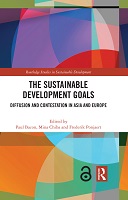Chapter 5 Sexuality education in Thailand
Proposal review
Contestation and reconciliation
Abstract
Internationally, providing young people with comprehensive sexuality education (CSE) has been suggested as an effective measure to achieve the goals of ending the AIDS epidemic and promoting sexual and reproductive health and rights, both before and after the formulation of the Sustainable Development Goals (SDGs). However, the implementation of school-based CSE continues to stagnate worldwide. This chapter provides a case study of Thailand to elucidate the norm diffusion process of school-based CSE within a state. For this aim, this chapter investigates Thailand’s policy development process and implementation with a focus on promotion and contestation against CSE among domestic actors. It also investigates the schools that participated in the national-scale project: the Teenpath Project, implemented by a non-governmental organisation to widen the implementation of CSE in schools. The results of the case study highlighted that school-based CSE in Thailand was promoted predominantly from a public health point of view, and that contestation was closely related to the perceived contradictions between the contents of CSE and existing socio-cultural norms. It was also found that the key to wider implementation of CSE at the school level was to enhance teachers’ and parents’ subjective recognition of the positive outcomes of CSE.
Keywords
education for sustainability, global governance, norms, SDGs, wellbeing discourseDOI
10.4324/ 9781003205951-7ISBN
9781032072180, 9781032072197, 9781003205951Publisher
Taylor & FrancisPublisher website
https://taylorandfrancis.com/Publication date and place
2023Grantor
Imprint
RoutledgeClassification
Business and Management
Educational strategies and policy
Central / national / federal government policies
Regional and area planning


 Download
Download